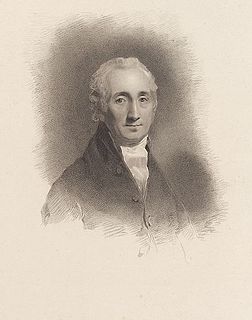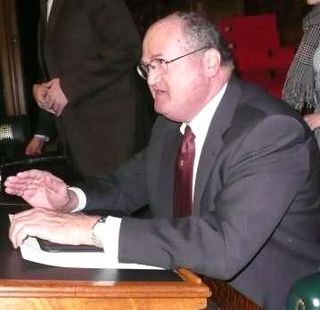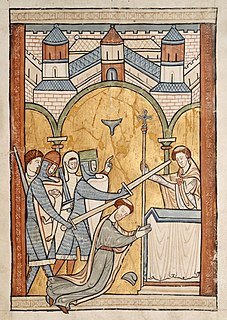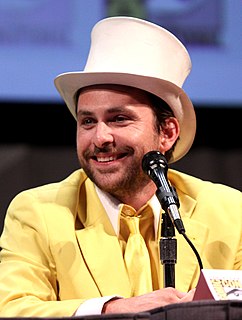A Quote by Alexander Fraser Tytler
It is not, perhaps, unreasonable to conclude, that a pure and perfect democracy is a thing not attainable by man, constituted as he is of contending elements of vice and virtue, and ever mainly influenced by the predominant principle of self-interest. It may, indeed, be confidently asserted, that there never was that government called a republic, which was not ultimately ruled by a single will, and, therefore, (however bold may seem the paradox,) virtually and substantially a monarchy.
Quote Topics
Attainable
Bold
Conclude
Contending
Democracy
Elements
Ever
Government
However
Indeed
Influenced
Interest
Mainly
Man
May
Monarchy
Never
Paradox
Perfect
Perhaps
Predominant
Principle
Pure
Republic
Ruled
Seem
Self
Self-Interest
Single
Therefore
Thing
Ultimately
Unreasonable
Vice
Vice And Virtue
Virtually
Virtue
Which
Will
Related Quotes
People think they have taken quite an extraordinarily bold step forward when they have rid themselves of belief in hereditary monarchy and swear by the democratic republic. In reality, however, the state is nothing but a machine for the oppression of one class by another, and indeed in the democratic republic no less than in the monarchy.
Perhaps it will be found that to obtain a just republic (and it is to secure our just rights that we resort to government at all) it must be so extensive as that local egoisms may never reach its greater part; that on every particular question, a majority may be found in its councils free from particular interests, and giving, therefore, an uniform prevalence to the principles of justice.
There is one vice of which no man in the world is free; which every one in the world loathes when he sees it in someone else; and of which hardly any people, except Christians, ever imagine that they are guilty themselves. […] There is no fault which makes a man more unpopular, and no fault which we are more unconscious of in ourselves.[…]The vice I am talking of is Pride or Self-Conceit: and the virtue opposite to it, in Christian morals, is called Humility.
There is, in fact, no reason to believe that any given natural phenomenon, however marvelous it may seem today, will remain forever inexplicable. Soon or late the laws governing the production of life itself will be discovered in the laboratory, and man may set up business as a creator on his own account. The thing, indeed, is not only conceivable; it is even highly probable.
The natural aristocracy I consider as the most precious gift of nature for the instruction, the trusts, and government of society. And indeed it would have been inconsistent in creation to have formed man for the social state, and not to have provided virtue and wisdom enough to manage the concerns of the society. May we not even say that that form of government is the best which provides the most - for a pure selection of these natural aristoi into the offices of government?
I have sought earnestly and with great diligence that good and high virtue by which man may draw closest to God... and as far as my intelligence would permit, I find that high virtue to be pure disinterest, that is, detachment from creatures. Our Lord said to Martha 'Unum est necessarium', which is to say; to be untroubled and pure, one thing is necessary and that is disinterest.
A first attempt to recover the right of self government may fail, so may a second, a third, etc. But as a younger and more instructed race comes on, the sentiment becomes more and more intuitive, and a fourth, a fifth, or some subsequent one of the ever renewed attempts will ultimately succeed... To attain all this, however, rivers of blood must yet flow, and years of desolation pass over; yet the object is worth rivers of blood and years of desolation. For what inheritance so valuable can man leave to his posterity?
There are still two forms besides democracy and oligarchy; one of them is universally recognized and included among the four principal forms of government, which are said to be (1) monarchy, (2) oligarchy, (3) democracy, and (4) the so-called aristocracy or government of the best. But there is also a fifth, which retains the generic name of polity or constitutional government.
You may ask what kind of a republic I dream of. Let me reply: I dream of a republic independent, free, and democratic, of a republic economically prosperous and yet socially just; in short, of a humane republic which serves the individual and which therefore holds the hope that the individual will serve it in turn. Of a republic of well-rounded people, because without such it is impossible to solve any of our problems, human, economic, ecological, social, or political.
The Church of Christ is constituted in two orders, the clergy and the people, the one having the care of the Church that all may be ruled for the salvation of souls; the other contains kings, princes, and nobles who have to carry on secular government that all things may lead to the peace and unity of the Church.
We may conclude, therefore, that, in order to establish laws for the regulation of property, we must be acquainted with the nature and situation of man; must reject appearances, which may be false, though specious; and must search for those rules, which are, on the whole, most useful and beneficial.
However baby man may brag of his science and skill, and however much, in a flattering future, that science and skill may augment; yet for ever and for ever, to the crack of doom, the sea will insult and murder him, and pulverize the stateliest, stiffest frigate he can make; nevertheless, by the continual repetition of these very impressions, man has lost that sense of the full awfulness of the sea which aboriginally belongs to it.


































